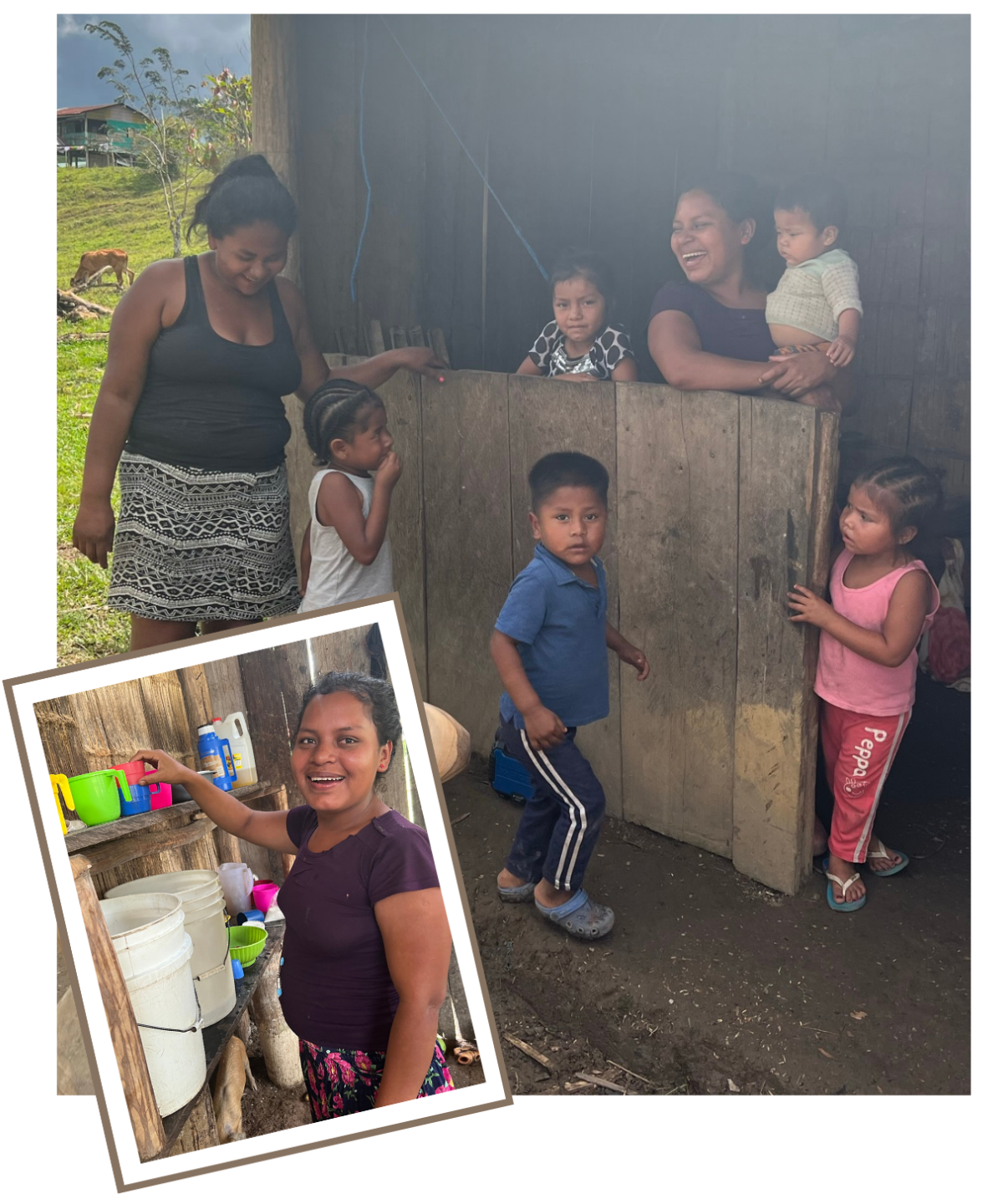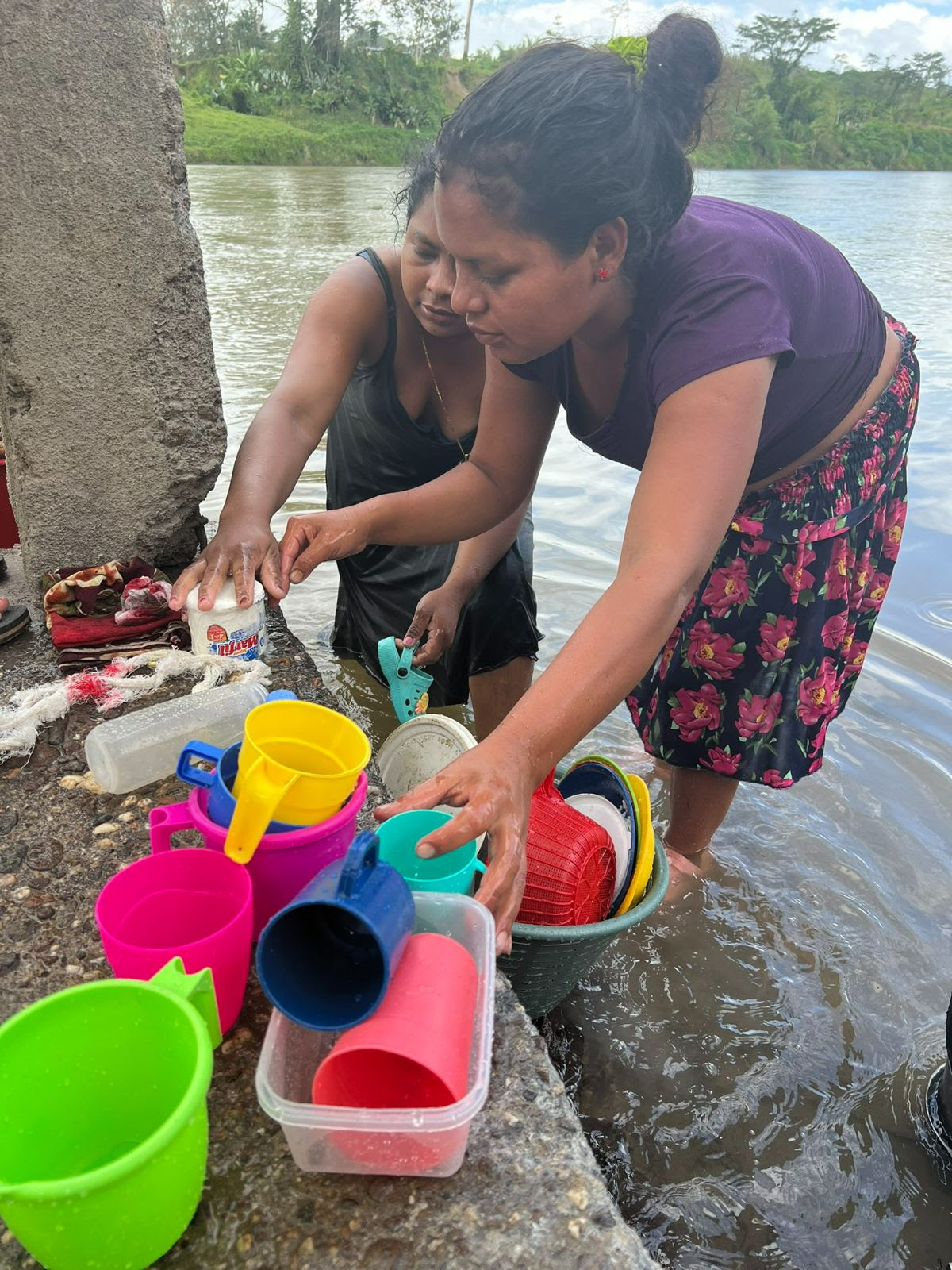Mothers make it happen
May 12, 2023
Going the extra mile. Making the sacrifices. Shouldering the worry. Lifting the weak. Celebrating the successes. Providing the comfort. Making it happen. All of it.
Moms. It’s what they do.

Our encounter with Marik and her family may have been brief, but it nonetheless spoke volumes about what it’s like to be a mother making it all happen for her family in the Bosawas, Nicaragua. With a baby on one hip and two more little ones underfoot, any mother could tell that Marik had her hands full. She also had her water buckets full, her rice husker full, and a full pot of something on the stove. All signs of a full day, no doubt. A typical day to be sure.
The water in the buckets lined up on a ledge in the modest kitchen came from both the Coco river – water Marik hauls up the bank for doing the washing – and from the stream where she collects the water for drinking and cooking. There is no water system here. No tap. No kitchen sink. 
The rice, a food staple in the BOSAWAS, and a tummy filler, is grown locally and means food on the table year-round. It also means a thrice daily routine to remove the husks from the grains using a traditional woman-powered rice husker. It means five or six hours of labour.
While Marik’s husband tends to the land where they also grow cacao to sell to boat drivers traveling up and down the river, Marik tends to the children and the elderly – in sickness and in health – the home, the washing, the water collection, the beans and the rice. Repeat.
It becomes pretty clear how removing even just one of the burdens that rests on the shoulders of women – like water collection, like rice threshing – can have a massive impact, freeing up time for family, for community governance, for economic pursuits, and even for recreation.

Our Local Knowledge: Global Goals project has piloted the use of a mechanical rice threshing machine in one community in the BOSAWAS, and while there is a small cost (10 cents per pound) associated with its use, the time tradeoff has proven worth it for many as evidenced by the log book with rows and rows of women’s names on its pages. Expanding the availability of a mechanical rice thresher in more communities would improve the quality of life for many more mothers.
Our Clean Water for BOSAWAS project aims to make safe water more accessible to families by tapping into local water sources, repairing hurricane damage, improving safe water systems – to bridge the gap so that remote communities can receive the benefits of consistent access to safe water that we all enjoy.
This Mother’s Day, consider honouring your own mom in recognition of all that she does, has done, and is doing to make it all happen. Contributing to these projects in her name helps to lift another mother up – to make things just a bit easier for resourceful mothers in resource-scarce environments.
For Mothers who make it happen.
Contribute Today. Make it happen for Mothers.
Bosawas Central America and the Caribbean Food Sovereignty Health In The Field Indigenous Peoples Nicaragua Water
